Why does the Gas coming out of exhaust? All You Need To Know
Ever noticed gas escaping from your car’s tailpipe? Wonder what’s behind it? This article delves into the reasons behind gas coming out of the exhaust. Discover the causes, potential problems, and why it matters for your vehicle’s health and the environment. Get ready to demystify this puzzling issue and learn what steps you can take to tackle it head-on.
Table of Contents
Why does the Gas coming out of exhaust?
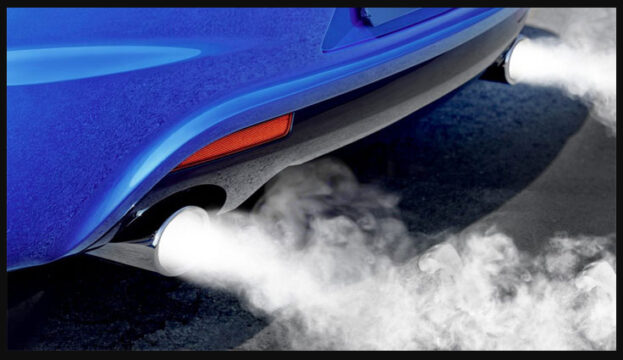
Gasoline coming out of the exhaust can indicate several potential issues with a vehicle’s engine and fuel system. It’s important to address this problem promptly, as it can lead to poor fuel efficiency, performance problems, and even safety hazards. Here are some possible causes of gas coming out of the exhaust:
Rich Fuel Mixture: An overly rich fuel mixture (too much gasoline and not enough air) can cause unburned fuel to pass through the combustion process and end up in the exhaust. This can be due to a malfunctioning fuel injector, a faulty oxygen sensor, or a problem with the engine’s computer.
Faulty Fuel Injector: A malfunctioning fuel injector can cause an uneven distribution of fuel into the cylinders, leading to incomplete combustion and the presence of unburned fuel in the exhaust gases.
Failed Oxygen Sensor: The oxygen sensor monitors the air-fuel mixture and provides feedback to the engine control module (ECM). A failed oxygen sensor can result in improper fuel mixture adjustments, leading to excess fuel in the exhaust.
Faulty Engine Control Module (ECM): The ECM controls various aspects of the engine, including fuel injection timing. If the ECM malfunctions, it might not be able to regulate the fuel mixture properly.
Toyota Camry Traction Control Light Stays On; Cuases, Diagnosing and Fixing
enginerides.com
Leaking Fuel Injector: A leaking fuel injector can release fuel into the combustion chamber when the engine is not running, causing it to accumulate in the exhaust system.
Exhaust Leak: A leak in the exhaust system, such as a cracked exhaust manifold or a damaged muffler, can cause unburned fuel to mix with the exhaust gases.
Faulty Catalytic Converter: A failing catalytic converter might not be able to properly convert harmful gases into less harmful substances. This can lead to the accumulation of unburned fuel in the exhaust.
Cold Start Enrichment: During cold starts, engines often require a richer fuel mixture. If the cold start enrichment system malfunctions, it can result in excess fuel in the exhaust until the engine warms up.
Engine Misfire: A misfiring cylinder can lead to incomplete combustion, causing unburned fuel to exit through the exhaust.
Worn Piston Rings or Cylinder Walls: Worn piston rings or cylinder walls can result in poor compression and combustion, allowing fuel to pass into the exhaust.
If you notice gas coming out of the exhaust, it’s recommended to have your vehicle inspected by a qualified mechanic as soon as possible. They can diagnose the issue and perform the necessary repairs to ensure your vehicle’s optimal performance and safety.
How to fix gas coming out of exhaust?
Fixing the issue of gas coming out of the exhaust requires identifying and addressing the underlying problem in the vehicle’s fuel and engine systems. Here’s a general guide on how to approach the situation:
- Diagnostic Inspection: If you’re not familiar with car repairs, it’s advisable to take your vehicle to a qualified mechanic or automotive repair shop. They will perform a diagnostic inspection to identify the specific cause of the issue.
- Address Fuel System Issues:
- Check Fuel Injectors: If a fuel injector is leaking or malfunctioning, it might need cleaning, repair, or replacement.
- Test Oxygen Sensors: If an oxygen sensor is faulty, it must be tested and replaced.
- Inspect ECM: If the engine control module (ECM) is suspected of causing fuel mixture issues, it might require repair or replacement.
- Examine Exhaust System:
- Check for Leaks: Inspect the exhaust system for any leaks, cracks, or damaged components. Leaks can allow unburned fuel to escape into the exhaust gases.
- Test Catalytic Converter: If the catalytic converter is failing, it might need replacement to ensure proper conversion of exhaust gases.
- Address Engine Issues:
- Resolve Misfires: If the engine is misfiring, diagnose the cause (e.g., spark plugs, ignition system) and repair accordingly.
- Inspect Compression: Worn piston rings or cylinder walls might require engine repair to restore proper compression and combustion.
- Cold Start Enrichment:
- If the cold start enrichment system is malfunctioning, it might need adjustment or repair to ensure proper fuel mixture during cold starts.
- Professional Repair:
- Depending on the complexity of the issue, it’s often recommended to have a professional mechanic perform the necessary repairs. They have the expertise and tools to accurately diagnose and fix the problem.
- Regular Maintenance:
- To prevent future issues, follow a regular maintenance schedule. This includes routine oil changes, fuel system cleaning, and overall vehicle inspections.
It’s important to note that the specific steps to fix the issue will depend on the underlying cause. Attempting to fix the issue without proper knowledge or tools can lead to further problems. If you’re not experienced with automotive repairs, it’s best to consult a professional mechanic to ensure the proper diagnosis and resolution of the gas coming out of the exhaust issue.
Is it OK to drive with an exhaust leak?
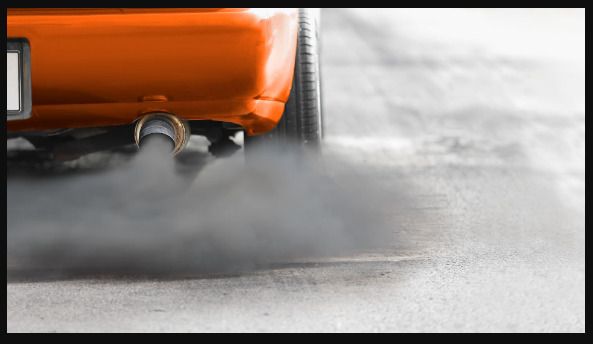
Driving with an exhaust leak is not advisable due to potential risks. Exhaust leaks can lead to increased noise, exposure to toxic fumes like carbon monoxide, reduced engine performance, check engine light activation, and environmental concerns.
This issue can also damage surrounding components and might violate legal regulations. To ensure your safety, vehicle performance, and compliance with regulations, a professional mechanic should address exhaust leaks promptly.
What Does “Pure Drive” Mean? All You Need To know
enginerides.com
What happens if gas overflows in car?
If gasoline overflows in a car, it can lead to several potential hazards and issues that should be addressed immediately:
- Fire Hazard: Gasoline is highly flammable. It can lead to a fire or explosion if it overflows and comes into contact with hot engine parts, sparks, or flames.
- Environmental Concerns: Spilled gasoline can contaminate the ground, water sources, and contribute to air pollution. Gasoline contains harmful chemicals that can be detrimental to the environment.
- Health Risks: Inhaling gasoline vapors or having skin contact with spilled gasoline can cause health problems, including respiratory irritation and skin irritation.
- Odor and Fumes: The smell of gasoline can be strong and overpowering, making the interior of the car unpleasant to be in.
- Reduced Fuel Efficiency: Overflowing gasoline can lead to wastage of fuel, reducing the car’s fuel efficiency and costing you money.
- Potential for Mechanical Damage: Gasoline can damage rubber seals, hoses, and other components if it comes into prolonged contact with them.
- Check Engine Light: Gasoline spills can trigger the check engine light, indicating a potential problem with the fuel system or emissions.
If you experience a gasoline overflow, it’s important to take the following steps:
- Stop Pumping Immediately: If you’re refueling and notice gasoline overflowing, stop pumping immediately to prevent further spillage.
- Avoid Starting the Engine: If gasoline has spilled onto the ground or near the engine, avoid starting the car to prevent igniting any fumes.
- Ventilate: If you’re inside the car while refueling and smell gasoline, open the windows to ventilate the cabin.
- Clean Up Carefully: If gasoline has spilled inside the car, clean it up carefully using appropriate cleaning agents. Use absorbent materials to soak up spilled gasoline on the ground.
- Seek Professional Help: If the situation is not manageable or if there’s a significant amount of spilled gasoline, it’s advisable to contact a professional towing service or mechanic for assistance.
To prevent gasoline overflows, always follow safe refueling practices, such as not topping off the tank, being attentive while refueling, and ensuring the gas cap is tightly closed.
Diagnose rough idle, white smoke, fuel dripping from tail pipe. this fixed my problem

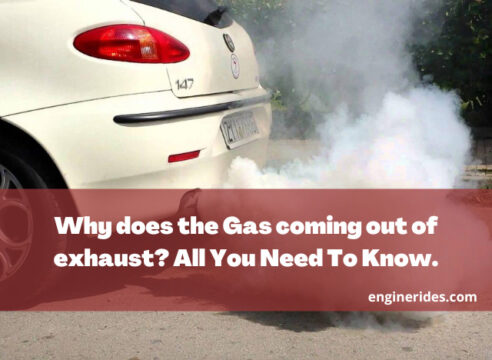
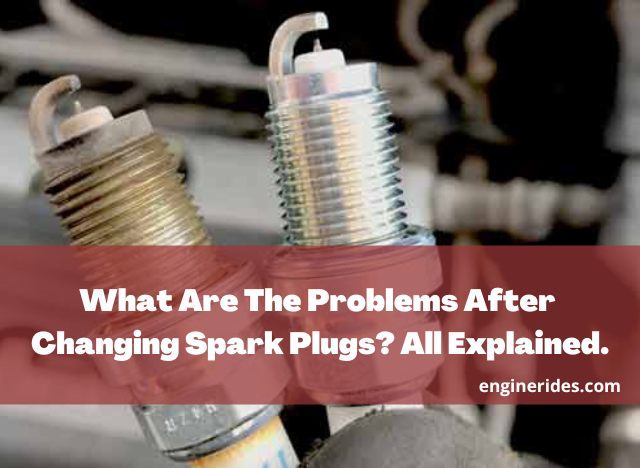

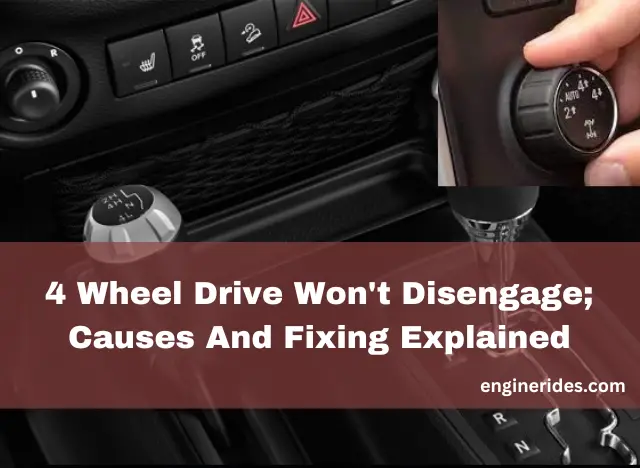

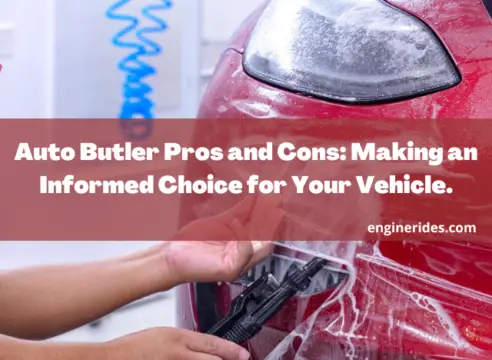
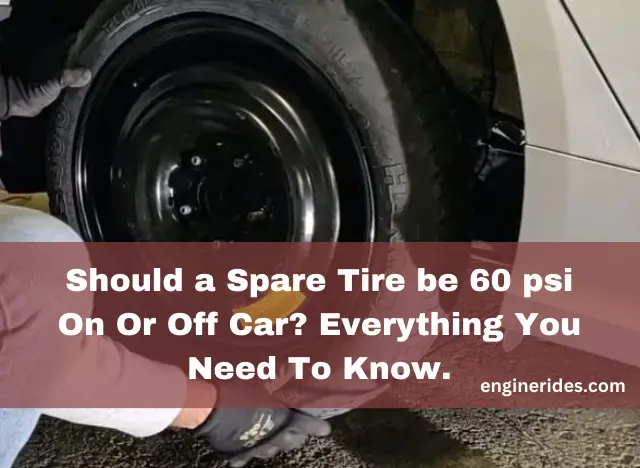
4 Comments